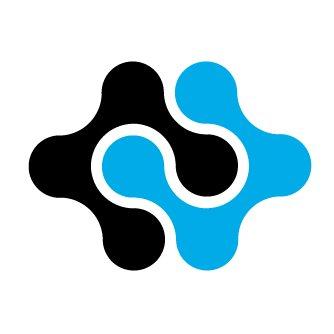Invest in private assets
Invest in startups and venture funds
Investments
$10
Fundrise allows a minimum investment of $10 for taxable accounts and $1,000 for IRAs.
Investments
$10,000
The minimum investment amounts on the OurCrowd platform are as follows: $10,000 for individual company investments, $5,000 per company with a $25,000 balance transfer for a Portfolio Select Account, and $50,000 for investing in OurCrowd funds.
Moderate Risk
3/5
Investing with Fundrise involves risks such as limited liquidity, potential modifications to the share repurchase program, market volatility affecting asset values, the possibility of total investment loss, and regulatory changes impacting operations.
High Risk
4/5
Investing via OurCrowd carries risks, including the potential loss of capital, market fluctuations, and limited liquidity. Early-stage companies may not succeed, leading to a total or partial loss.
Minimum Liquidity
1/5
Fundrise offers liquidity through its share repurchase program, allowing investors to redeem shares quarterly with no penalties or costs.
Minimum Liquidity
1/5
Investments on the OurCrowd platform are generally illiquid, as they involve early-stage, privately-held companies. Liquidity events, such as a sale or IPO, may take several years, and there is no guarantee or secondary market for trading these investments. Investors should be prepared for long-term commitments without immediate liquidity options.
Receive new reviews from Fintorial
Low Return
4.81 %
Investors on Fundrise can expect returns through dividends and appreciation, with an average income return of 4.81% over 7 years.
Not Predictable Return
N/P
Returns on investments in OurCrowd's early-stage companies and venture funds are highly variable and unpredictable. While there is potential for high returns, given the speculative nature of startup investing, there's also a significant risk of loss.
Long-term Investment
5+ years
Fundrise is designed for long-term investments, ideally for a period of 5 or more years, due to its focus on strategies aimed at long-term return potential.
Long-term Investment
5+ years
Investments through OurCrowd typically require a long-term commitment, often spanning several years to over a decade, due to the nature of startup and venture fund investing.
Who can invest
United States
To be eligible to invest with Fundrise, individuals must meet several criteria: they must be at least 18 years old, have permanent residency in the United States, possess a valid U.S. tax ID, and file taxes in the U.S. The platform is open to both accredited and non-accredited investors.
Who can invest
International
OurCrowd investments are open to accredited investors as per local regulations, which vary by country. However, residents of Cuba, Iran, Lebanon, North Korea, Syria, and the Crimea Region of Ukraine are excluded from investing through the platform.
Moderate Volatility
3/5
Assets on the Fundrise platform, such as private real estate and venture capital, typically show lower volatility compared to public stocks and bonds, due to less frequent valuation updates and reduced exposure to daily market swings.
Moderate Volatility
3/5
Assets on OurCrowd, being early-stage and privately-held companies, are highly volatile. Their valuations can fluctuate significantly due to market dynamics, competition, and operational risks.
Regulation and audits
SEC Regulated
Fundrise is regulated by the SEC and must comply with strict reporting, disclosure, and operational standards. It undergoes regular independent audits to verify financial accuracy, legal compliance, and the effectiveness of its internal controls, ensuring transparency and integrity in its operations for investor protection.
Regulation and audits
SEC Regulated
OurCrowd complies with the regulations of each country it operates in, adhering to laws governing accredited investors and investment platforms. It is subject to regulatory oversight, ensuring transparency and investor protection. While not specified, financial audits and compliance checks are likely part of its operations to meet legal and financial standards, maintaining trust and reliability among investors.
Insurance
No
Investments on Fundrise, including real estate and alternative assets, are not insured by the FDIC or any other government agency, exposing investors to the risk of loss without insurance protection.
Insurance
No
OurCrowd does not offer insurance for investments on its platform. Investments in startups and venture funds are inherently risky, with no insurance protection against losses.
Payouts
Dividends
Dividends are paid quarterly, based on income from portfolio projects, and can be either reinvested or cashed out. Appreciation comes from increases in the value of the investment, reflected in the net asset value (NAV) of shares. Returns start accruing after investment settlement, typically within 5 business days, and can be tracked on the Investor Dashboard.
Payouts
No Recurring Payouts
Investors on OurCrowd typically do not receive dividends from their investments in startups and venture funds, as these are growth-focused and aim for capital appreciation. Profits are usually reinvested to fuel further growth.
Withdrawals
To withdraw funds from Fundrise, investors must submit a liquidation request. Liquidations are reviewed quarterly for most funds, with a waiting period for the eFund. No penalty is charged for liquidating shares from the Flagship, Income, or Innovation Funds, but eREIT and eFund shares held for less than five years may incur a penalty. Liquidations are processed on a "First in, first out" basis.
Withdrawals
Investors on OurCrowd can get their money back during a liquidity event such as an IPO, acquisition, or sale of the company.
Extra Fees
Yes
Fundrise charges a 0.15% annual advisory fee, a 0.85% management fee for real estate funds, and a 1.85% management fee for the Innovation Fund. Early liquidation of eREIT or eFund shares before 5 years incurs a 1% penalty.
Extra Fees
Yes
OurCrowd's fee structure includes a 2% annual management fee for the first four years, capped to cover investment management costs. Additionally, there's a 4% upfront administration fee for direct SPV expenses, with the possibility of extra reimbursement set off from returns upon distribution. Carried interest entails a 20% fee on profits up to 5x the invested amount, escalating to 25% for proceeds exceeding 5x.
Taxes
Tax Form
Fundrise investors can expect Form 1099-DIV for eREITs or interval funds with distributions over $10, Schedule K-1 for eFund shares, and Form 1099-B for liquidated shares. Tax documents are issued at the end of January for 1099-DIVs and mid-March for K-1s, available on the investor dashboard. Multiple funds in a portfolio may result in receiving multiple tax forms.
Taxes
Annual Statement
OurCrowd offers investors an annual statement, which is essential for tax reporting. This statement details the year's financial activities, aiding in accurate tax filings.

